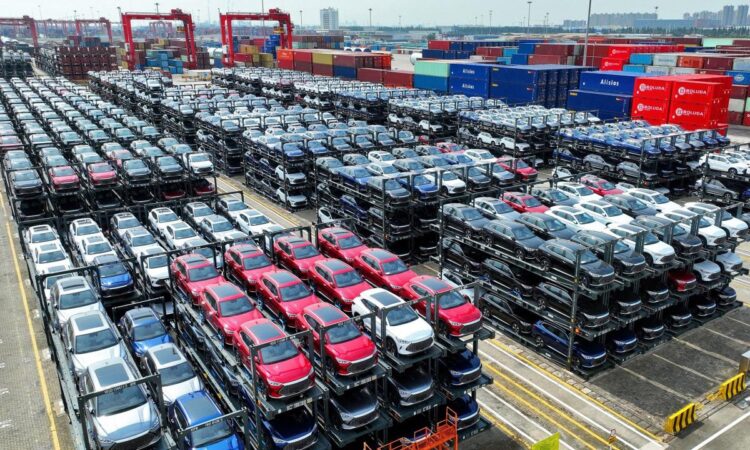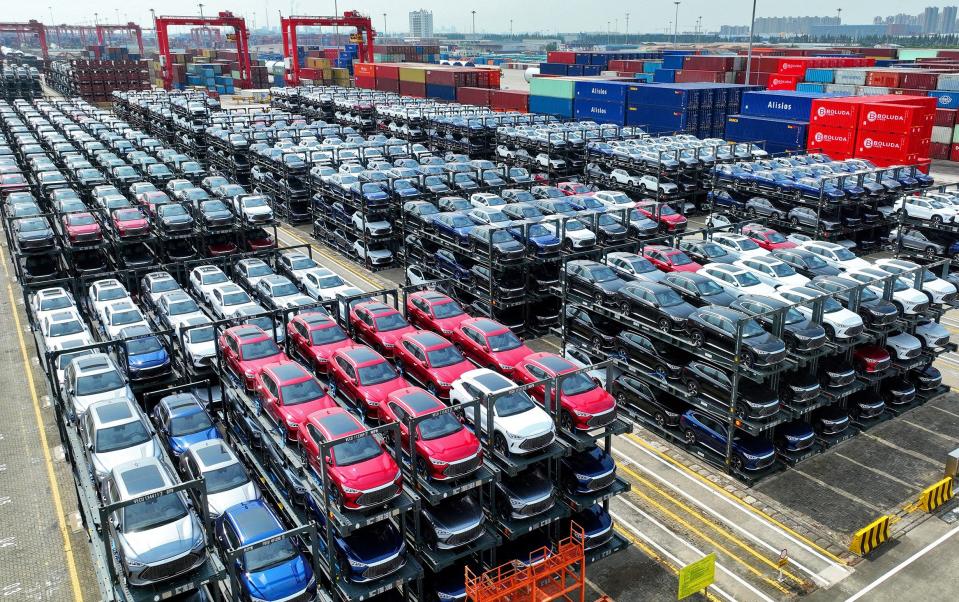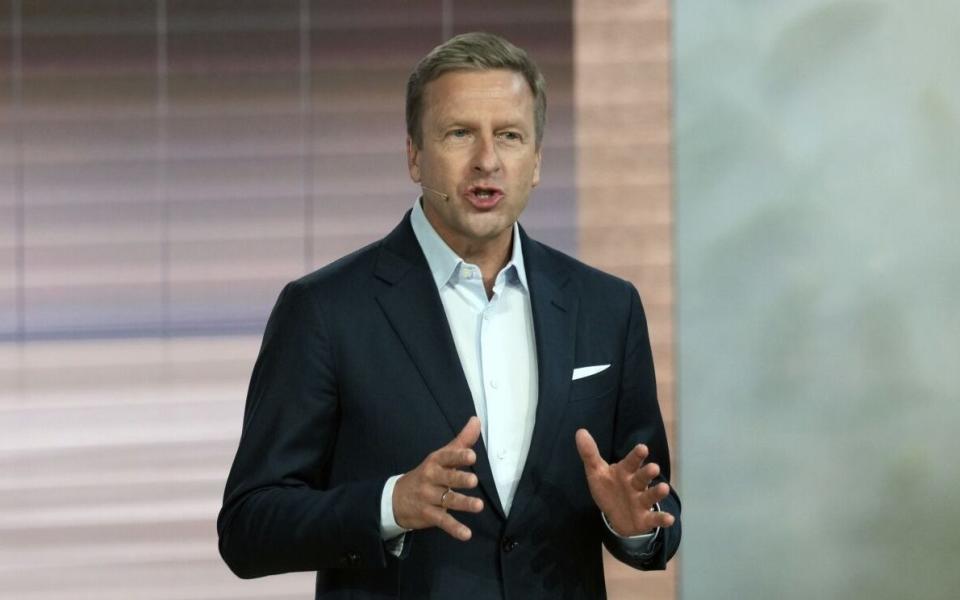

BMW has urged the European Union not to be “so afraid” of Chinese electric vehicles (EVs) amid a rift between Germany and France over how to tackle a wave of cheap exports.
Oliver Zipse, chairman of BMW Group, claimed fears about an onslaught of Chinese EV arriving on the Continent were overblown and that imposing restrictions flew in the face of free trade.
He pointed to the operations of foreign car makers in China, which is BMW’s biggest market, and warned that getting into a tit-for-tat trade war would “harm German industry much more than the other way around”.
His comments come as an EU investigation into alleged subsidies provided to Chinese manufacturers rumbles on, raising the prospect that the bloc could hit their cars with import tariffs.
European capitals remain split on the prospect of tariffs, with Germany expressing caution and France adopting a tougher position.
But in remarks translated by an interpreter on Wednesday, Mr Zipse insisted: “It is certainly not true that Europe’s currently being swamped with Chinese products.”


He said European car makers already enjoyed market access in China, adding: “And by the way, [China] is now our largest market.
“And as soon as [Chinese car makers] begin to gain a foothold in Europe, we’re getting worried, although they’re not even fully here yet.
“From a Chinese point of view, this is not comprehensible at all. And we understand that this is not comprehensible.”
Mr Zipse went on to say, “We have very good market access in China.
“And in the other way around, if all of a sudden we’re trying to close down the borders, because we’re so afraid. This is not what free trade is about.
“I think we have a right to be self confident and don’t be so afraid, as the European Union currently is.”
He added that BMW was “against introducing customs duties” and warned: “Doing anything like that on a permanent basis, it will harm the German industry much more than the other way around.”
It came as BMW on Wednesday also reported its first quarter results, with the Munich-based car giant forecasting a drop in profits as it ploughs money into developing EVs while battling higher staff costs and falling used car prices.
The company has pencilled in record spending on EV development in 2024, up from €7.5bn (£6.5bn) last year.
Like other car makers, it is also ramping up investment in China as it seeks to hold on to market share amid fierce competition on prices from domestic brands.
But against that backdrop, there are concerns that overproduction of EVs in China, where there is a glut of both EV brands and cars, will now lead to a flood of cheap vehicles being exported to Europe.
Last year, the European Commission launched an investigation into China’s top car makers and their suppliers amid concerns that Beijing has tipped the scales by pumping tens of billions of dollars worth of subsidies into its own industry.
Ursula Von der Leyen, the commission’s president, has warned that the EU must “make sure that competition is fair and not distorted”, while French President Emmanuel Macron reiterated the concerns as he hosted Chinese premier Xi Jinping this week.
“I’m calling for an adjustment because China now has excess capacity in many areas and exports massively to Europe,” Mr Macron told a magazine ahead of the state visit.
But Olaf Scholz, the German Chancellor, has repeatedly urged caution.
He said last month: “We want to sell our cars in Europe, in North America, in Japan, in China, in Africa, in South America, in all the places.
“But this means that we’re open to getting the cars of other countries also on the market of Germany.”






